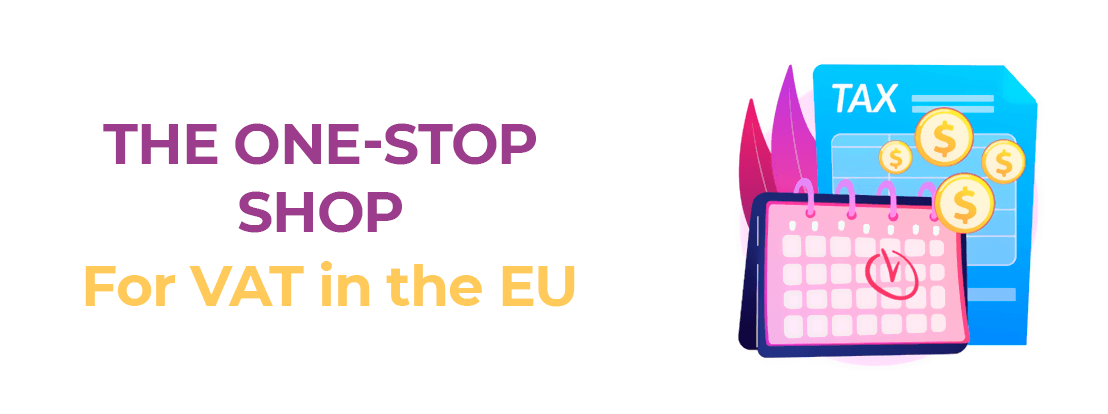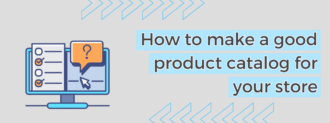Let’s talk about one of the biggest – if not the biggest, in fact – sales tax reforms for eCommerce. And it is that VAT changes apply in the EU. Do you know them?
The regulation came into force on July 01, so we leave you in this article the main keys so that you have everything clear about the management of VAT between member countries when it comes to online sales.
Table of contents
Regulations since 1993
EU legislation regarding sales tax has been basically the same since 1993. Are online sales and the presence of eCommerce the same now as it was then? The answer is no. That’s why the change in VAT regulation was a necessity.
At that time, the goal and the main concern was that small and medium-sized companies selling or shipping goods to other European countries would not have to register for VAT in all of them regardless of sales (even if they were minimal). Economically, this would have been a burden for SMEs, as hiring a tax advisor is a high cost.
To solve this problem, in 1993 “delivery thresholds” were established so that, if small businesses did not exceed them, they could tax their intra-Community shipments from the tax office of their State of residence.
The delivery threshold was set at 100,000 euros, but many Member States reduced it to 35,000 euros (except Germany, the Netherlands and Luxembourg, which kept it at 100,000)
Okay. So then, what has changed now?
New eCommerce VAT regulations
Royal Decree-Law 7/2021, presented on April 27, indicates that as of July 1, 2021, shipments to other EU countries will almost always have to be taxed in the destination countries.
why? Because the thresholds I spoke about earlier will no longer be valid. In their place, a new threshold appears: €10,000 for the entire European Union.
That is, in the case of distance sales, (which are cross-border shipments to final consumers resident in the EU), if they exceed this new threshold of 10,000 euros (we are always talking about net value), they must be taxed in the country of destination. Or, in other words, in the country to which the sale or delivery of goods has been made.
Therefore, if it is the case of your company – which sells to individuals in any European country for more than 10,000 euros per year – you have to pay VAT in the Member State where your buyers reside or are located.
More specifically, this common threshold will be applicable as of July 1, 2021 for the following cases:
- Intra-Community distance sales
- Provision of digital services (such as streaming or e-books)
But of course, this applies from July 1st. How do I manage the first half of 2021? How do I manage everything in general from now on? Through the One-Stop-Shop.
what is the One Stop Shop (OSS)?
The One Stop Shop is a platform developed locally by each EU member state. In fact, it should have been in place since January, but due to the delay of some of the countries in developing it, it is being launched now.
In the case of Spain, the OSS one-stop shop has been developed by the Tax Agency, so that online merchants who become taxable persons in other EU states – as they make cross-border B2C sales – can declare their sales and settle VAT for their eCommerce.
But before we go any further: the use of OSS is voluntary. If you as an online merchant want to continue to manage your eCommerce VAT as before, you can do so.
In fact, if you use warehouses abroad, e.g. within the framework of Amazon’s Pan-European Logistics Program, registrations and declarations will still have to be made locally in the country of the respective warehouse.
And in the case of B2B deliveries they cannot be declared through the one-stop shop, they continue to be declared locally in the country of origin as before.
If this is not your case and you decide to use it, please note that the Single Window has three modalities. And all of them refer exclusively to deliveries or services made to B2C final consumers.
Regime outside the Union (EUOSS)
Entrepreneurs or professionals not established in the Community who provide services to persons who do not have the status of entrepreneur or professional, acting as such, and who are established in the Community.
Union Regime (UOSS)
Businessmen or professionals who carry out the operations that are the object of the regime, whether or not they are established in the Community, are eligible for this regime.
Import Regime (IOSS)
Businessmen or professionals, whether or not established in the Community, who carry out distance sales of goods imported from third countries or territories in shipments whose intrinsic value does not exceed 150 euros, with the exception of products subject to special taxes, may be eligible.
when do I have to make the OSS declarations at the one-stop shop?
Quarterly. At the latest, on January 31, April 30, July 31 and October 31 of each year. And your payment deadline will be 30 days from the end of the return period.
how do I implement this regulation change in my online store?
You would have to do two important things, one essential and one optional, which will depend on your agency.
- Charge the correct VAT to each customer according to their country of residence. This is the easy part. You just have to modify the tax rule of your store and set the correct VAT for each country.

(table: billin.net)
This way, you will be able to charge the VAT of each country according to your customer’s residence.
2. Different billing series according to the country of sale. This is the part that you can save if your agency does this for you. As you know, in PrestaShop you can only have a single billing series for each store. Then, your accountant will have to separate the sales you have made in each country, in order to make the corresponding VAT declarations for each of them. But most likely your accountant will ask you to give them this information separately, because otherwise it will be an arduous and complex task for them. And for sure, if they have to do it, they will double or triple the monthly fee they charge you for their services, as their work will multiply.
But if you have a multi-store with several stores and in each one you sell to a different country, then you will have this problem half solved, since you can configure a different billing series for each store. But BEWARE, because PrestaShop does not correctly manage these billing series, which should be completely independent and with correlative numbering for each store. Unfortunately, here there is a bug in the application that to this day, remains unresolved. You can configure different billing series with different prefixes, but all the invoices will be correlative in a general way between all the stores of the multi-store, making the billing series no longer valid for the tax agency. So, it’s a hassle.
Again, don’t worry about these issues, because as always, IDX has a solution for you.
If you have a multi-store, you can buy this module. With it, the multi-store billing series will work perfectly, since it fixes the bug described above.
In case you have a simple online store, without multi-store and sell to several countries, don’t worry, we also have a solution for you. We are working on an extension of the module that I just recommended, which will allow you to create new billing series for each of the countries that you have active for sale. It will be available in a few days, so you can contact us if you want to be notified when this new functionality will be active. Or you can buy it now and as soon as it is available we will release the update.
Conclusions and last notes
If you own or manage an online business or act as a tax advisor for an eCommerce, here is a brief summary of what you should keep in mind.
- As of July 1, 2021, the delivery thresholds of 35,000 or 100,000 euros will disappear. Instead, a supply threshold of 10,000 euros per year (net) will apply for all EU countries.
- VAT returns are periodic and can be managed centrally at the One Stop Shop (OSS) in the country where the company is based or in the country where the decision has been made to tax the shipment or sale of goods. Taking into account, of course, its applicable VAT rate.
- With the one-stop shop, VAT is paid in one go and the amount collected is automatically divided and transferred to the relevant EU country.
- If you decide to use the OSS, local VAT registrations and declarations in other EU countries are no longer necessary for distance sales.
- B2C deliveries to the own country (country of domicile of the trader) will not be reported through the OSS, it will still be done through the local tax office. It does not apply if the delivery is made from a warehouse in another EU country.
- If you declare your international B2C (distance selling) shipments through the one-stop shop, you will not have to issue invoices for them.
- The VAT will also be transferred to the relevant tax authority in the state of residence.
- You have to adapt your store to charge the VAT of the customer’s country of residence.
- You will have to provide your agency with the sales separated by country.
Related Posts










Deja un comentario